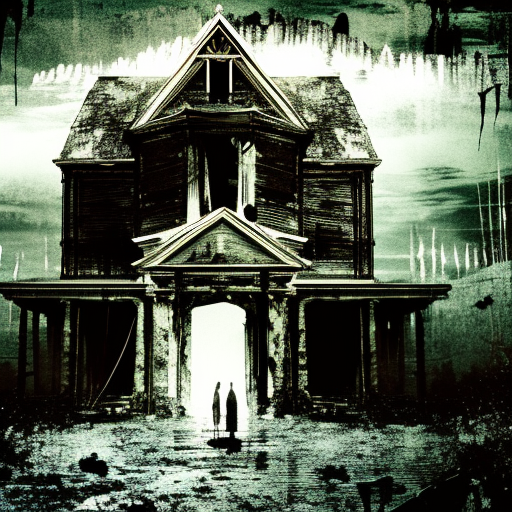The Fall of the House of Usher: A Haunting Tale of Madness and Decay
In “The Fall of the House of Usher,” Edgar Allan Poe weaves a chilling tale of a decaying mansion and the tormented family that resides within. As the narrator arrives at the gloomy estate, he is drawn into a world of madness, death, and supernatural occurrences. With its atmospheric setting and haunting themes, this gothic masterpiece explores the destructive power of isolation, the fragility of the human mind, and the inescapable grip of fate.
A Sinister Setting: The House of Usher
The story begins as the narrator receives a letter from his childhood friend, Roderick Usher, who implores him to visit their ancestral home. The House of Usher, a decaying mansion surrounded by a desolate landscape, sets the stage for the eerie events that unfold. Poe’s vivid descriptions of the house’s dilapidated state and its oppressive atmosphere create a sense of foreboding and unease. The crumbling structure mirrors the deteriorating mental state of the Usher family, symbolizing their impending doom.
The Haunting Curse of Isolation
As the narrator spends time with Roderick Usher, he becomes increasingly aware of the family’s isolation and its detrimental effects. Roderick and his twin sister, Madeline, suffer from a mysterious illness that confines them to the house. Cut off from the outside world, they are trapped in a cycle of despair and madness. The theme of isolation permeates the story, highlighting the destructive consequences of being cut off from human connection and the outside world.
The Fragility of the Human Mind
“The Fall of the House of Usher” delves into the fragility of the human mind and the depths of psychological torment. Roderick Usher, plagued by his own neuroses and fears, descends into madness throughout the story. His heightened senses, hypersensitivity to light and sound, and irrational fears contribute to his deteriorating mental state. Poe explores the fine line between sanity and insanity, emphasizing the vulnerability of the human psyche and the potential for it to crumble under the weight of internal and external pressures.
- Key Takeaways:
- Isolation can lead to madness and despair.
- The human mind is fragile and susceptible to psychological torment.
- Decay and deterioration can symbolize the decline of both physical and mental states.
“I felt creeping upon me, by slow yet certain degrees, the wild influences of his own fantastic yet impressive superstitions.”
In conclusion, “The Fall of the House of Usher” is a haunting tale that explores themes of isolation, the fragility of the human mind, and the inescapable grip of fate. Through its sinister setting, the decaying House of Usher, Poe creates an atmosphere of dread and impending doom. The story serves as a cautionary tale, reminding us of the destructive power of isolation and the delicate nature of our own sanity. As readers delve into the depths of madness alongside the characters, they are left with a lingering sense of unease and a deeper understanding of the human psyche.












